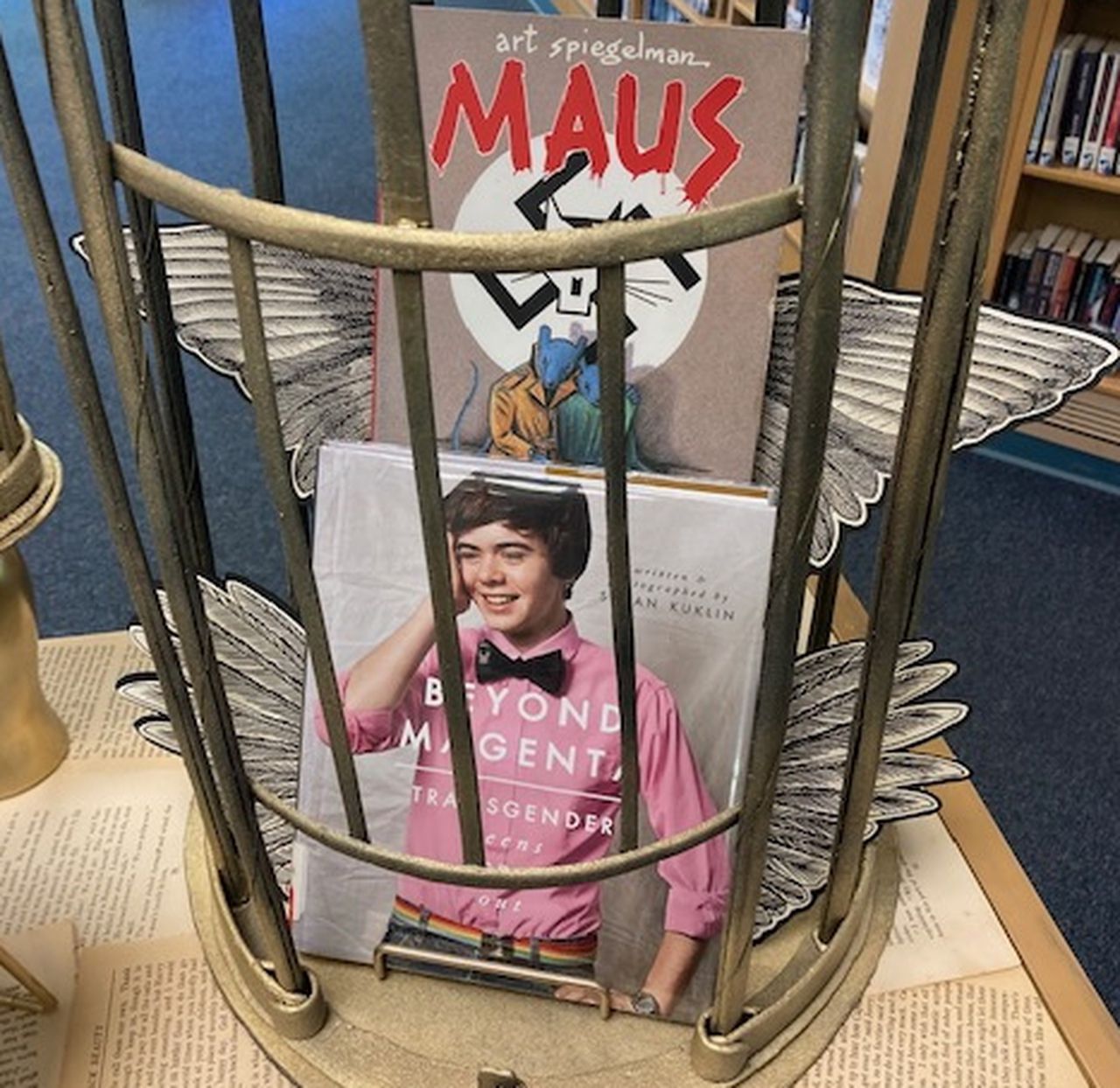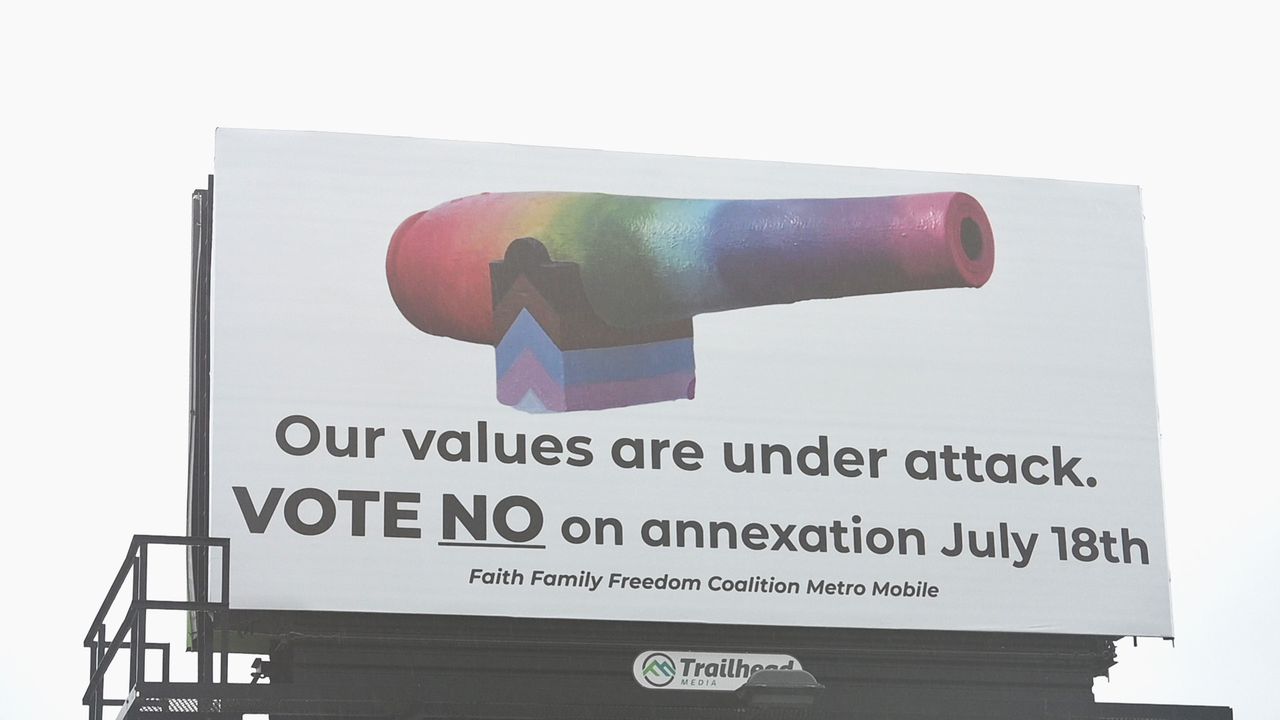Mobile residents may challenge up to 30 library books
Gail Walton and Cathy Odom say they do not want books banned from the Mobile Public Library, but they are going forward on an attempt to have a few of them reviewed by library officials that they deem troubling for children to read.
It’s an effort not dissimilar to those occurring across the nation as public and school libraries become the latest hot spot in the county’s ongoing culture wars.
“We are fighting a culture war,” said Walton, a Mobile resident who is heading up efforts challenging books in libraries in Mobile County that include transgender lifestyles and include the concept of gender fluidity. She is also pushing against the library’s continued participation in the American Library Association, which also echoes efforts going on in other places around the country.
“We are concerned not just about books, but all materials offered to the children in the children’s section,” Walton said. “We want more parental control over what the children see. We ask the books we object to are moved to the adult section so parents can decide what’s appropriate for their child. A lot of parents do not have a clue.”
If need be, Walton said they will take their concerns to the Mobile City Council, which is in charge of appointing library board members.
She said approximately 30 books could be challenged, though only four books have been officially filed for reconsideration before the library administration.
Mobile challenges
The library, in a statement, said the women are approaching their concerns in the right way. Four books have officially been challenged, in writing through reconsideration forms, to library officials.
“What the ladies have done is what they should do in turning in book challenges,” according to the library’s administration. “They will be researched by staff and the challenges (will be) presented to management who will review the concerns to make sure we do what we should do.”
The four books under consideration include:
Kuklin’s publisher, in response to an AL.com inquiry, sent a letter that she wrote to a North Carolina school system over concerns about “Beyond Magenta.” Kuklin argued that banning her book restricted and discouraged “freedom of expression” and enabled bullies and further attacks on transgender people.
“By challenging or banning the stories and lessons of the six brave, thoughtful young people in ‘Beyond Magenta,’ our autonomous society is saying that they do not – or should not – exist,” Kuklin wrote, referring to her book that chronicles the experiences of six recently transitioned youths.
“Well they do exist,” Kuklin added. “And they are loved and appreciated by many. LGBTQ young people and their families need to know this.”
Walton and Odom were at the Library Board’s meeting on Wednesday but did not speak out about their concerns. They said they only attended to observe and understand the board’s processes.
Odom said the efforts in Mobile are also an offshoot of opposition that sprung up during Pride Month in June over a drag queen show at Cathedral Square during a monthly Art Walk event.
A billboard linking LGBTQ policies to a “Vote No” on Mobile’s annexation question during a special election on Tuesday, July 18, 2023, has surfaced along Airport Boulevard near Baker High School in Mobile, Ala. (John Sharp/[email protected]).
And that event, among other issues, spurred opposition to the city’s special election to annex unincorporated territories west of the city limits. An anti-LGBTQ+ billboard opposing annexation was displayed in the weeks before the election, and a group called Faith Family Freedom Coalition Metro Mobile, which was not registered as a political action committee with the state, led the opposition campaign.
In Mobile, LGBTQ+ activist Bryan Fuenmayor said he hopes to eventually meet with the women and discuss their concerns.
“Book censorship is not good for our country nor is book banning,” he said. “I agree with the sentiment that we need to protect children and young adults from pornographic materials or things that are not age appropriate. It’s my understanding that none of these (challenged) books contain this. But I’d be more than happy to sit down with these ladies and review these materials and how they define pornography and obscene material.”
Statewide approach
Walton said the effort in Mobile is inspired by a similar approach in Prattville this spring when a group of concerned parents led by Hannah Rees, called for the Autauga-Prattville Public Library and the Prattville City Council to begin removing books with LGBTQ+ content.
The group initially found six books that they immediately submitted to library officials for reconsideration. The library’s director, amid the scrutiny over the books, resigned in June. And now more than 40 books are now up for reconsideration, and almost all have to do with LGBTQ+ content, according to reports.
Rees, in an email to AL.com, said she was familiar with the efforts in Mobile. She said her group’s efforts in Prattville have taken root throughout the state into Lee County, Madison County, North Shelby County, Cullman, Baldwin County (Fairhope and Foley), Muscle Shoals and Mobile.
The statewide efforts are part of a national push that places library content into the spotlight. Much of the effort has taken place in the past two years, led by Florida and Republican Gov. Ron DeSantis, who is running for president in 2024. DeSantis, in 2022, led Florida in becoming the first in a series of red states to enact laws making it easier for parents to challenge books in school libraries that they deem to be pornographic, or deal with sensitive issues like race.

Banned book week display at a library branch. One of the books is among the four that could be challenged in Mobile. (file photo)
The nationwide effort seems to be having an impact. The American Library Association noted that book ban requests were at an all-time high last year at schools and public libraries. More than 1,200 challenges were compiled by the association in 2022, nearly double the record from 2021 and the most since the ALA began keeping data 20 years ago, according to reports.
Rees said her group’s efforts have expanded beyond Prattville because “people began reaching out for advice on where to start, how to handle opposition from library staff and boards, needing book lists, etc. It is our duty to provide a safe environment for our children, and that includes public libraries.”
Rees added, “We want to be a resource for anyone desiring to protect children from exposure to radical gender ideology and pornographic materials that are being distributed by our Alabama public libraries under the guise of protecting against censorship.”
